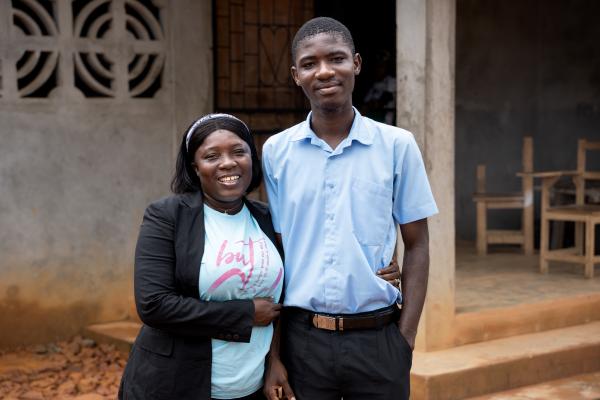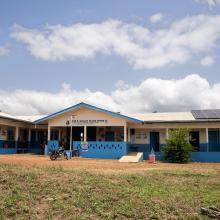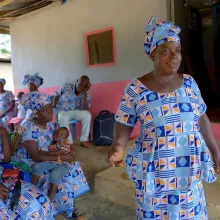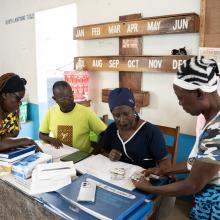“There comes a time that you can even regret why you have to carry that nine-month pregnancy,” Elizabeth Wreh Sackor.
A mother of former substance use disorder boys from Maryland County, shared those words with a troubled voice, reflecting on her painful memories during an event organized by Partners In Health (PIH) Liberia’s mental health team in collaboration with the Maryland County Health Team.
The gathering was intended to celebrate the progress of youths who have been part of PIH and the County Health Team Substance Use Disorder Rehabilitation Project.
For Elizabeth, this wasn’t just about the event organized by the Mental Health team to celebrate substance-abused youth who had achieved remarkable progress in their rehabilitation journey. It was also a moment to reflect and share her experience. Her two eldest sons had fallen prey to substance abuse, turning her home into fear and sorrow.
“They used to fight with knives, and I would be running around, crying,” Elizabeth recalls.
Desperate for a solution to her sons’ deviant behavior, Elizabeth made the difficult decision to send her sons to Ghana, hoping that distance and separation from substances would help break the cycle of addiction. However, the reality proved harsher than expected. Her eldest son, Daniel S. Sackor, showed signs of despair rather than recovery. Isolated from his mother as part of his punishment and restricted to communicating only with his father, Daniel sank into severe depression. Elizabeth remembers receiving alarming calls from Ghana. “They started calling me, saying that if I don’t come for my child, he will kill himself,” she recounts.
Two years later, when Elizabeth and her husband traveled to Ghana to reunite with Daniel, the encounter was heartbreaking. “The day I arrived, my son, who has not seen me for two years, was sitting as though he did not even know me. So, I started crying.” As a medical professional, she felt her expertise was useless.
“I gave up because I felt it was a spiritual problem,” Elizabeth admits.
A turning point came when a psychiatrist in Ghana offered her a new perspective: Daniel’s struggles weren’t spiritual but rooted in mental health issues. However, the cost of treatment was excessive, forcing the family to bring Daniel back to Liberia, despite fears of relapse.
Before returning, Elizabeth reached out to the mental health department at James Jenkins Dossen (JJD) Hospital in Maryland County. Encouraged by their guidance, she enrolled Daniel in the mental health program. “They started seeing him and he started taking his treatment, and by the grace of God, he has greatly improved,” Elizabeth shares with relief.
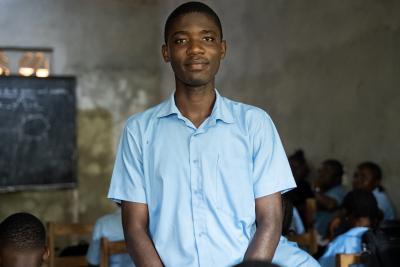
Daniel Sackor, one of Elizabeth’s children, stands among his classmates in Harper, Maryland County, Liberia. Photo by Ansumana O. Sesay / PIH
In Liberia, it is estimated that at least 400,000 people suffer from mental health issues, epilepsy, or addiction, with approximately 130,000 experiencing severe forms. The shortage of trained professionals further limits access to mental health care services. Since 2017, Partners In Health Liberia and the Maryland County Health Team have worked collaboratively to address this burden. They have transitioned mental health care from facility-based services to community support systems. Between 2021 and 2023, the team provided essential care to 5,705 mental health beneficiaries in Maryland County alone, many of whom are youth battling addiction and mental health challenges.
While the fight against addiction and mental health struggles continues, the chaos in Elizabeth’s life has been replaced by care and hope. Her journey has transformed her from a parent in despair to an advocate for change. She now approaches other young people struggling with substance abuse with empathy rather than judgment. Her message to fellow parents is clear: “We should not abandon them,” she encourages other parents. “Abandonment is not the solution. The solution is that we should keep talking and praying to God. Keep praying for the mental health team for them to remain in Maryland County,” she passionately pleads.
